Since the fall of 2021, Advance CTE’s Opportunity Gap Analysis (OGA) workshop has provided training, resources, and support to help state leaders identify and address gaps in access to high-quality Career Technical Education (CTE). While high-quality CTE programs of study across the country are providing opportunities for learners to follow their passion, achieve career goals, and ensure future economic success, the reality is that not all learners have access to these programs. In this blog series, Senior Policy Associate Jessi Maddox interviews previous participants of the OGA workshop to share the impact and the lessons learned from implementing the training in their state.
The reauthorization of the Carl D. Perkins Career and Technical Education Act (Perkins V) on July 31, 2018, elevated the importance of equal access to CTE programs and connected experiences for all learners and has challenged states and local recipients to prioritize this work to address identified gaps. Over the past three years, Advance CTE has led in-depth gap analysis training with 39 state teams. These teams have further disseminated the gap analysis process within their state CTE systems, resulting in changes in policies and practices that bring identifying and addressing gaps to the forefront of their CTE programs.
With the launch of the newest cohort of the Opportunity Gap Analysis workshop this past May (2024), we wanted to connect with prior participants and ask about the impact the gap analysis training has had on equal access to CTE programs within their state. This month we are spotlighting the Bureau of Community Colleges and Postsecondary Readiness with the Iowa Department of Education and the work their team has done since the culmination of their cohort in Fall 2022.
Iowa’s participation in the workshop has increased collaboration of CTE professionals at the state and local level, created more connected data systems within the state, and facilitated a data-oriented approach to closing access gaps in their CTE programs.
Tell us about yourself and your CTE background.
The Iowa Department of Education CTE Education Program Consultants collaborate in the areas of access, equity, accountability, monitoring, and compliance to administer Perkins V at the secondary and postsecondary levels. CTE consultants, coordinators, and administrators (both internal and external stakeholders) have varying levels of experience in CTE program administration across all levels of CTE, such as secondary, postsecondary, state-level management, and local-level management.
When did your state participate in the Opportunity Gap Analysis Workshop?
In June 2022 with a team that consisted of the State CTE Director, Methods of Administration (MOA) Coordinator, data personnel, and an education consultant.
What in-state training(s) has your team facilitated using the Opportunity Gap Workshop model and/or related resources?
The state team has led six trainings (virtual and face-to-face) targeting local-level CTE faculty and administrators over the last two years. These training sessions have focused on serving students with disabilities in CTE to understand the number of local programs where a student population may be under- or over-represented.
Describe how your team’s participation in the Opportunity Gap Analysis training impacted CTE in general within your state.
The training allowed stakeholders to focus on a particular subset of students to identify access barriers to CTE programming. Utilizing a collaborative approach with multiple state agencies serving students with disabilities (SWD), we developed a process of identifying enrollment, participation, and completion patterns for SWD with the construction of data dashboards focusing on students with an Individualized Education Program (IEP). The dashboards are a work in progress with the goal to include all special population subgroups. This tool has proved invaluable for school districts to develop inclusive and targeted improvement plans.
Describe how the Opportunity Gap Analysis training specifically led to changes in your state’s data policies and procedures.
At the district level, input from stakeholders including CTE teachers, administrators, and counselors regarding the low number of CTE concentrators provided insight into procedures, policies, or practice that needed change in order to address systemic barriers preventing full engagement for students.
The data dashboards and the accompanying training resources allowed for increased collaboration with internal Department data staff and with outside agencies. For example, to better track the educational and training experiences of youth experiencing homelessness and youth in foster care, the Department entered into data-sharing agreements with other state agencies that also serve these students. This will allow for better outreach and connections with community-based organizations and workforce development to reach disconnected youth at the secondary level as well as older students and young adults aging out of the foster system.
In addition to setting up long-term data-sharing agreements, CTE data consultants and the Iowa Department of Health and Human Services also took short-term steps to better serve learners in foster care through one-time data pulls that match foster care records with community college enrollment records.
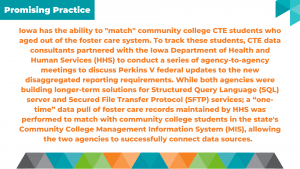
Please describe any steps that have been taken to improve access for CTE learners after going through the CTE opportunity gap analysis process:
Perkins applications for fiscal year 2025 reflect the use of OGA training resources in the development of recipients’ bi-annual Comprehensive Local Needs Assessment (CLNA) plans/priorities in serving special population students in CTE. These applications reflect specific language and recommendations from the training in several areas.
A sampling of activities mentioned in District applications included
1) data-driven decision making;
2) incorporating CTE engagement in the development of IEPs;
3) career counseling and support services;
4) increasing Career Technical Student Organization (CTSO) and work-based learning opportunities;
5) outreach and recruitment; and
6) supporting inclusive learning environments in CTE classrooms.
What lessons learned, or outcomes, from your workshop and facilitation experiences would you most like to share with states considering participating in an Opportunity Gap Analysis cohort?
Collaboration is key in addressing inequities in CTE. Our experience from the state level is that it is necessary to work across divisions internally and to streamline quantitative and qualitative data collection and analysis processes across agencies and educational levels. This will assist in the evaluation of existing procedures and practices in CTE program delivery to facilitate a change-oriented approach in the program improvement process in our efforts to better serve all students in CTE.
Bring the Opportunity Gap Analysis to Your State
If your organization is interested in learning more about what it takes to conduct a gap analysis in your state, or other opportunities to engage with Advance CTE’s suite of resources addressing methods to close access gaps, fill out the Technical Assistance Interest Form for personalized options that can help both staff and learners succeed.
Join us at Advance CTE’s upcoming Fall Meeting in Phoenix, AZ on October 21-23, 2024. During this three-day convening, there will be specific sessions dedicated to OGA and upcoming enhanced versions of the original workshop. These new iterations of the workshop will focus on state-requested program areas like work-based learning, apprenticeship, and credentials of value. We hope to see you in the Grand Canyon state!
 Tracking and analyzing data are key to any successful Career Technical Education (CTE) program. CTE leaders use everything from pen and paper to full-scale data management systems to record this essential information.
Tracking and analyzing data are key to any successful Career Technical Education (CTE) program. CTE leaders use everything from pen and paper to full-scale data management systems to record this essential information. 



 Jennae Overton’s journey through both the Natural Resources and Business CTE programs illustrates how CTE can cater to diverse interests and skills. Drawn to both
Jennae Overton’s journey through both the Natural Resources and Business CTE programs illustrates how CTE can cater to diverse interests and skills. Drawn to both  Helen Ramos, a first-generation Hispanic learner in the Redesign Teacher Academy and member of the Educators Rising CTSO, brings attention to the evolving landscape of representation in education. Her experience highlights the progress made in diversifying the teaching workforce while also pointing out areas for improvement. Helen notes that while her English proficiency sometimes led to assumptions about her understanding, she also became a valuable resource in helping English Language Learners (ELLs) in her program. “My friends would get papers that were translated and the teacher would tell us to help them and I would volunteer,” she shares. Helen’s journey underscores the need for CTE programs to be mindful of language barriers and cultural differences.
Helen Ramos, a first-generation Hispanic learner in the Redesign Teacher Academy and member of the Educators Rising CTSO, brings attention to the evolving landscape of representation in education. Her experience highlights the progress made in diversifying the teaching workforce while also pointing out areas for improvement. Helen notes that while her English proficiency sometimes led to assumptions about her understanding, she also became a valuable resource in helping English Language Learners (ELLs) in her program. “My friends would get papers that were translated and the teacher would tell us to help them and I would volunteer,” she shares. Helen’s journey underscores the need for CTE programs to be mindful of language barriers and cultural differences.  Learn more about intensive technical assistance opportunities to get help developing learner-centered CTE programs by completing the
Learn more about intensive technical assistance opportunities to get help developing learner-centered CTE programs by completing the
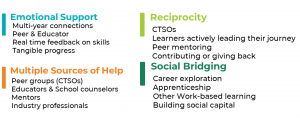
 Much of the information in this blog is from the author’s training as an Adverse Childhood Experiences Master Trainer through ACE Interface with Dr. Robert Anda and Laura Porter and through her volunteer work within the community mental health space.
Much of the information in this blog is from the author’s training as an Adverse Childhood Experiences Master Trainer through ACE Interface with Dr. Robert Anda and Laura Porter and through her volunteer work within the community mental health space.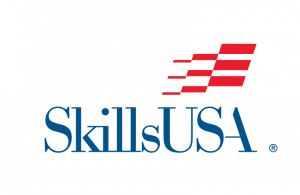 As a state Career Technical Education (CTE) leader, you’ve likely heard the phrase “skills gap” many times. We hear it often at
As a state Career Technical Education (CTE) leader, you’ve likely heard the phrase “skills gap” many times. We hear it often at 
 According to the recent
According to the recent 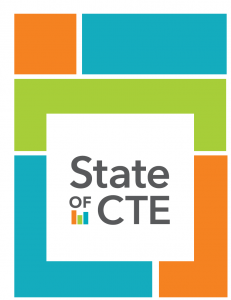 States make significant contributions to CTE programs through non-categorical, line item appropriations. Programmatic funding is distributed through periodic, legislatively established authorizations that are contingent on the availability of funds. States often place conditions on how money should be spent or used to promote state priorities. Additionally, a programmatic line item appropriation can be a recurring or a one-time investment. This blog highlights appropriations in industry-recognized credentials, Career Technical Student Organizations (CTSOs), career advisement, and educator preparation for fiscal year (FY) 2022. You can read more about categorical funding in the first blog in this series,
States make significant contributions to CTE programs through non-categorical, line item appropriations. Programmatic funding is distributed through periodic, legislatively established authorizations that are contingent on the availability of funds. States often place conditions on how money should be spent or used to promote state priorities. Additionally, a programmatic line item appropriation can be a recurring or a one-time investment. This blog highlights appropriations in industry-recognized credentials, Career Technical Student Organizations (CTSOs), career advisement, and educator preparation for fiscal year (FY) 2022. You can read more about categorical funding in the first blog in this series,  Additional Resources
Additional Resources Advance CTE joins the Arkansas Department of Education in welcoming Ross White as the new State Career Technical Education (CTE) Director. Ross transitions into this role while fulfilling the duties of the Association for Career and Technical Education (ACTE)’s
Advance CTE joins the Arkansas Department of Education in welcoming Ross White as the new State Career Technical Education (CTE) Director. Ross transitions into this role while fulfilling the duties of the Association for Career and Technical Education (ACTE)’s 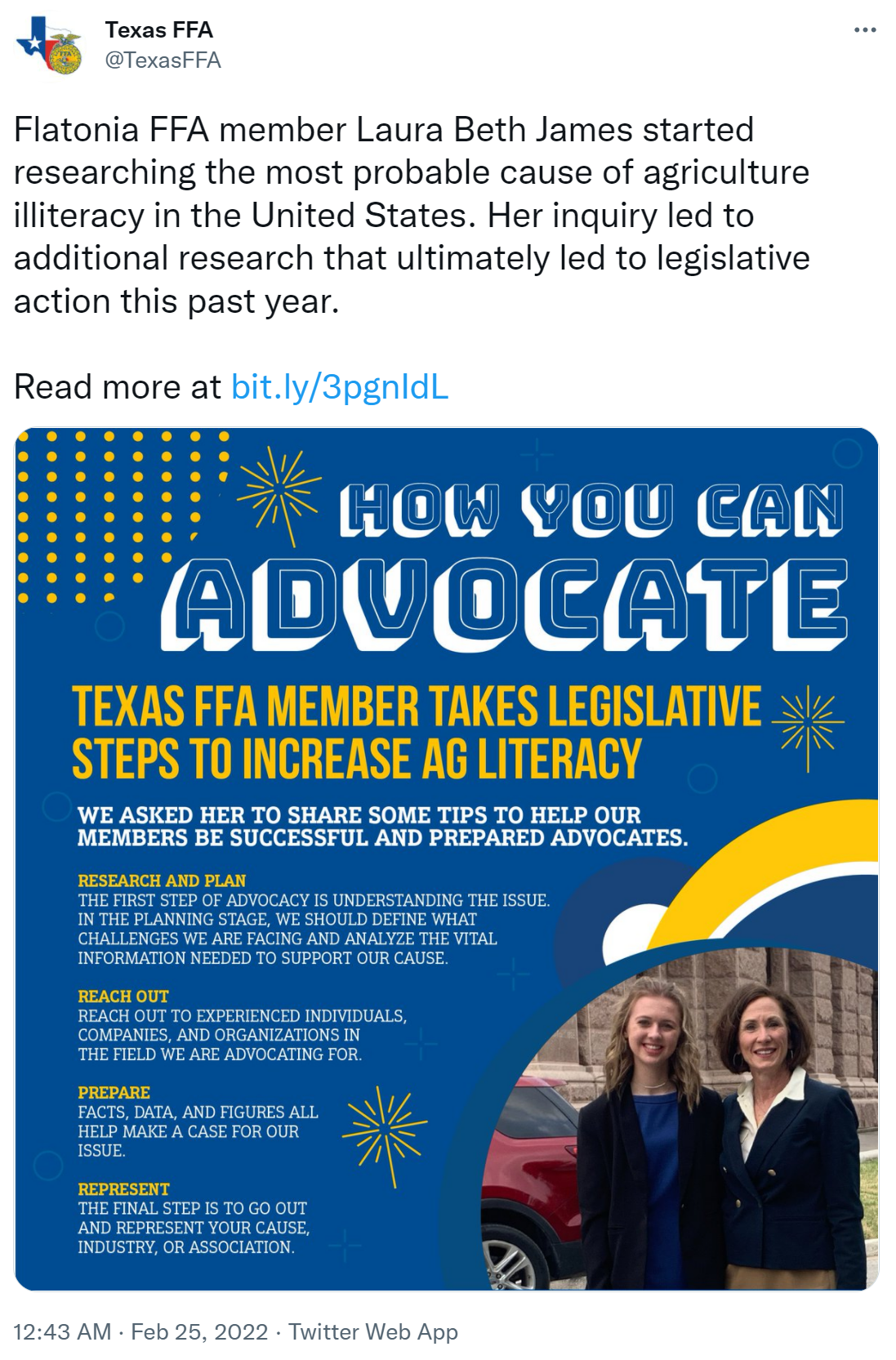 Laura Beth from Texas FFA noticed a barrier to each learner reaching their full potential within their career journey. Her commitment to
Laura Beth from Texas FFA noticed a barrier to each learner reaching their full potential within their career journey. Her commitment to 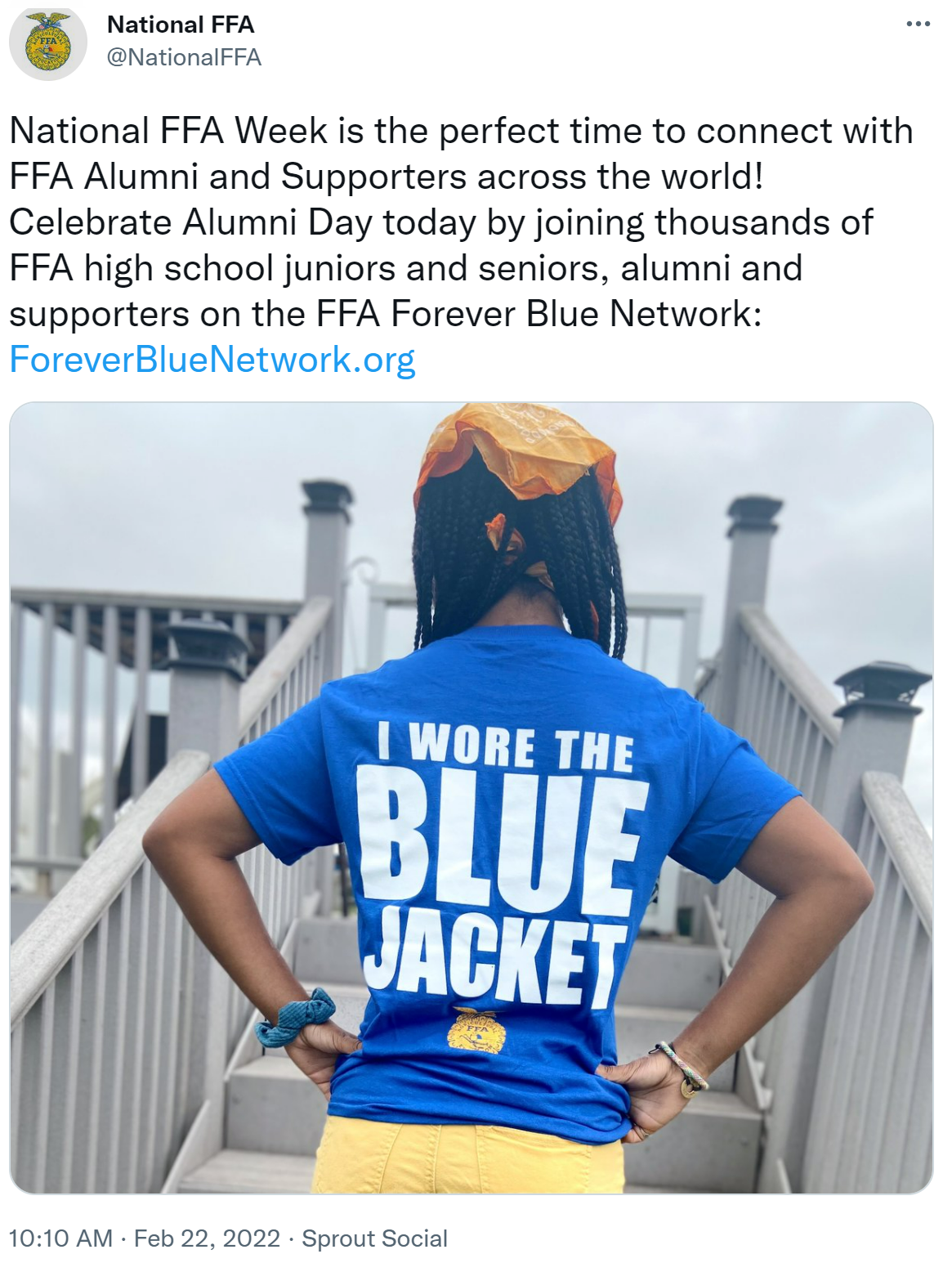
 On Give FFA Day 2022, corporate donors from industry showed their value in the skills learners receive when participating in FFA. Donors participated in donation matching challenges throughout the day to support the CTSO and ultimately the learners served.
On Give FFA Day 2022, corporate donors from industry showed their value in the skills learners receive when participating in FFA. Donors participated in donation matching challenges throughout the day to support the CTSO and ultimately the learners served. 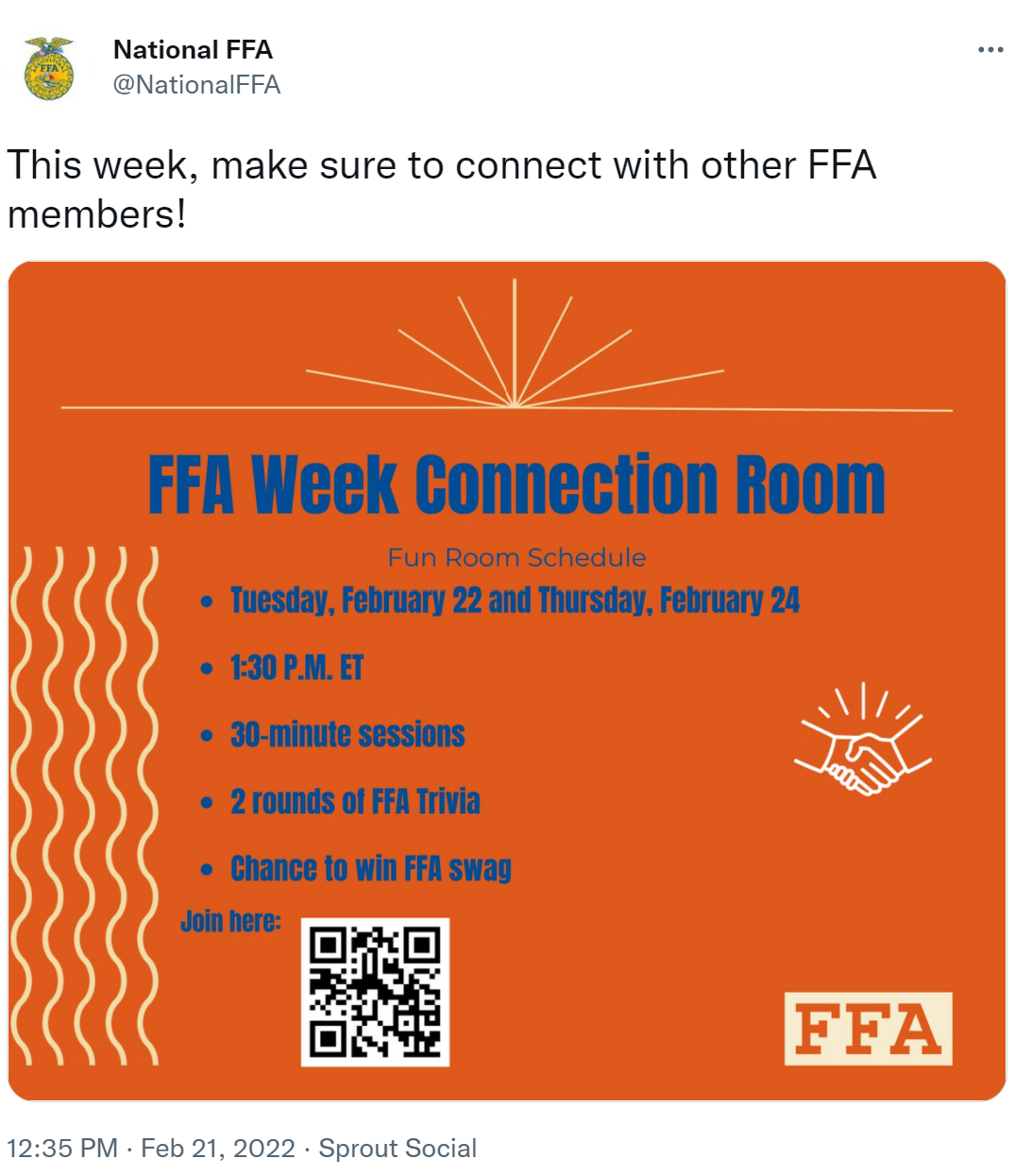 Future dates for National FFA Week are below:
Future dates for National FFA Week are below: These organizations are a powerful model for learner-centered and learner-led education, and Advance CTE is pleased to be joined by seven national CTSOs in supporting the national vision for CTE.
These organizations are a powerful model for learner-centered and learner-led education, and Advance CTE is pleased to be joined by seven national CTSOs in supporting the national vision for CTE. 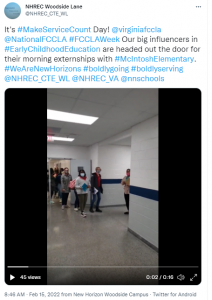 FCCLA members at New Horizons Regional Education Center: Woodside Lane in Newport News,
FCCLA members at New Horizons Regional Education Center: Woodside Lane in Newport News,  Griffin Middle School in
Griffin Middle School in 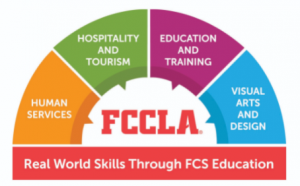 FCCLA strives for FCCLA members to have clear paths for their skills to be valued and counted. FCCLA has identified four career pathways that align to key technical and “employability” skills gained through FCCLA experiences, listed below. Members also have the opportunities to test and display skill competencies at
FCCLA strives for FCCLA members to have clear paths for their skills to be valued and counted. FCCLA has identified four career pathways that align to key technical and “employability” skills gained through FCCLA experiences, listed below. Members also have the opportunities to test and display skill competencies at 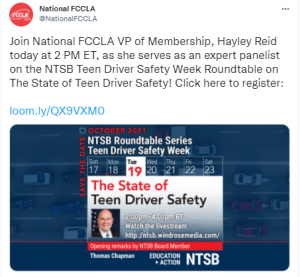 FCCLA members have the opportunity to share their skills and make connections beyond the classroom and even their state. National FCCLA leader Hayley Reid participated in a federal policy panel held by the National Transportation Safety Board.
FCCLA members have the opportunity to share their skills and make connections beyond the classroom and even their state. National FCCLA leader Hayley Reid participated in a federal policy panel held by the National Transportation Safety Board.  Meet Stacy Whitehouse! Stacy is the Senior Associate for Communications and State Engagement at Advance CTE. Stacy works to develop and implement communications and outreach strategies that support state CTE leaders. Some of her most recent initiatives include communications research for
Meet Stacy Whitehouse! Stacy is the Senior Associate for Communications and State Engagement at Advance CTE. Stacy works to develop and implement communications and outreach strategies that support state CTE leaders. Some of her most recent initiatives include communications research for